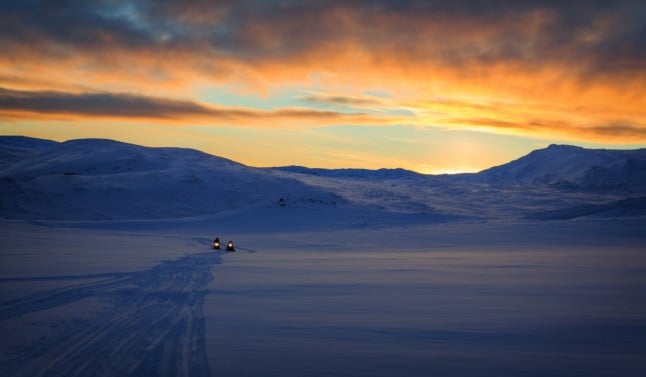A source at the president's office in Brazzaville, who asked to remain anonymous, slammed the report as "an unprecedented intrusion into Congolese affairs."
The Berne Declaration, known for probes into corruption among African leaders, claims that Philia — a Swiss trading firm owned by one shareholder — signed a contract with the Republic of the Congo's state-owned refinery Coraf in 2013 to export oil products.
The contract was not obtained via a public tender process, according to the NGO.
Coraf, the nation's only oil refinery, is managed by Denis Christel Sassou Nguesso, the son of the oil-rich country's president, Denis Sassou Nguesso.
"Coraf provided the Geneva-based trader with free credit and, in doing so, enabled it to bypass the compliance procedures that trade finance banks typically conducted before allocating credit," the non-governmental group said in a statement earlier this week.
"By immediately re-selling its cargoes to third parties, including other Swiss traders, Philia acted as a pure intermediary between Coraf and the
international markets.
"Philia therefore pocketed substantial profits for zero logistical effort."
The Republic of the Congo is among the top oil producers in sub-Saharan Africa, and its economy is heavily dependent on its petrol exports.
But the country remains riddled with poverty.
The Berne Declaration —which said its claims were based on exclusive documents it obtained — alleges that the refinery is "a true financial abyss for the Congolese Treasury."
"For three years, the state has not received a single penny in exchange for the oil it allocates to the refinery," it says.
The source at the Congolese presidency voiced outrage at the allegations.
"Sooner or later, we will responde to give the true version of the facts," the source told AFP.
OIL
Swiss firm plundered Congo oil rents: NGO
An NGO has accused a Swiss trading firm of misappropriating oil rents from the Republic of the Congo thanks to an exclusive contract with a refinery managed by the son of the African state's leader.
Published: 4 March 2015 22:51 CET
Url copied to clipboard!


 Please whitelist us to continue reading.
Please whitelist us to continue reading.
Member comments